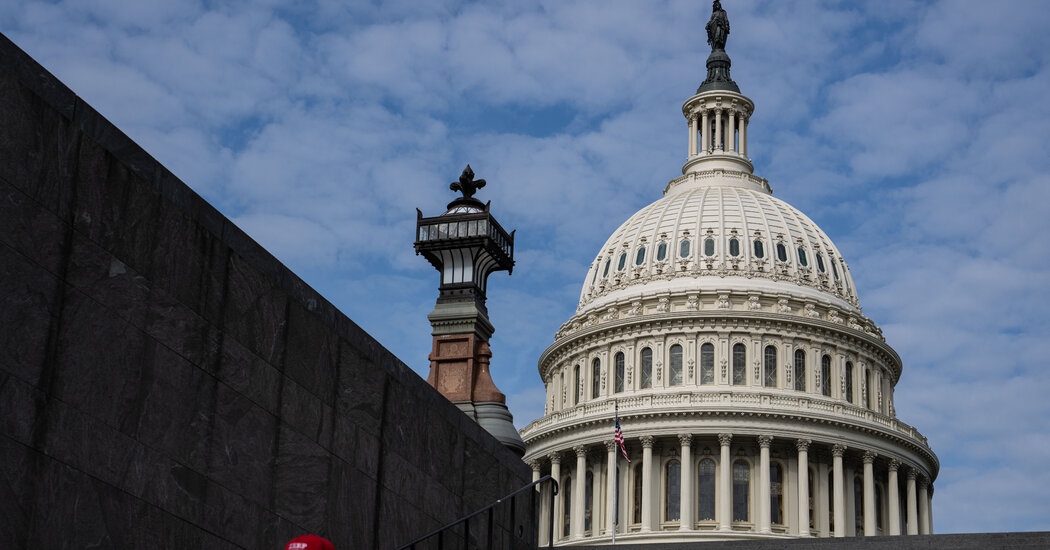
 News
News 
Bipartisan talks between top White House and Republican congressional officials over a deal to raise the debt limit ended without a breakthrough on Friday, capping a day of whiplash as negotiators seeking to avoid the first default in the nation’s history repeatedly started and ended discussions amid growing G.O.P. frustration.
Negotiations came to a halt on Friday morning after Republicans vented anger about discussions on spending caps, and Speaker Kevin McCarthy declared a “pause” to the talks. Just hours later, he announced Republicans’ return to the negotiating table, but the discussions ended after an hour on Friday night, and it was unclear when negotiators planned to meet again.
The series of abrupt turns reflected the unwieldy state of negotiations over a bipartisan deal to avert a debt default that could occur as soon as June 1, coupled with a mounting sense of urgency to find a resolution as Congress runs out of time to avoid the economic calamity that could follow.
By the end of the night, Mr. McCarthy’s top advisers were casting doubt on whether they could achieve a deal by the end of the weekend, a timeline the speaker had said on Thursday he saw “a path” to achieving.
Several outstanding issues remain in the negotiations, lawmakers said, but Republicans appeared particularly discouraged by what they said was White House officials’ refusal to budge on how strictly to cap federal spending.
“It’s very frustrating if they want to come into the room and think we’re going to spend more money next year than we did this year,” Mr. McCarthy, a California Republican, said on Fox Business on Friday evening, as he announced that his deputies would return to the negotiating table. “That’s not right, and that’s not going to happen.”
The bill that House Republicans passed last month would raise the nation’s borrowing limit into next year in exchange for freezing spending at last year’s levels for a decade — which would lead to cuts of an average of 18 percent.
“We’ve got to get movement by the White House, and we don’t have any movement,” Mr. McCarthy said earlier on Friday, as he announced the initial pause in negotiations. He added: “We can’t be spending more money; we have to spend less than we spent the year before.”
Mr. Biden was checking in regularly with negotiators from Hiroshima, Japan, where he was attending the annual meeting of the Group of 7 major industrial powers, but aides traveling with him sounded less optimistic about a deal in the coming days than they had a day earlier.
“There’s no question we have serious differences, and this is going to continue to be a difficult conversation,” Karine Jean-Pierre, the White House press secretary, told reporters in Japan. “That’s not lost on us. But the president’s team is going to continue to work hard toward a reasonable bipartisan solution that can pass the House and the Senate.”
In a nod to growing complaints on the left, Ms. Jean-Pierre emphasized the need for both Republican and Democratic votes. And when pressed by reporters on the more measured tone, she insisted that “the optimism continues to be there,” while adding several times that a deal would depend on whether Mr. McCarthy “will negotiate in good faith” and that everyone should recognize that “you don’t get everything that you want.”
Both Democratic and Republican leaders were facing pressure from their bases not to compromise.
Former President Donald J. Trump weighed in on Friday on his social media site, declaring that Republicans should not make a deal on the debt ceiling unless they got everything they wanted.
“DO NOT FOLD!!!” he wrote.
In a letter, liberal Democratic lawmakers renewed their calls for Mr. Biden to “refuse to reward Republicans’ reckless refusal to raise the debt ceiling without preconditions,” urging him instead to invoke the 14th Amendment to continue issuing new debt to pay bondholders, Social Security recipients, government employees and others.
Negotiators were at odds over a handful of issues, including the extent to which a possible deal would include tougher work requirements for social safety net programs — a proposal that has drawn a backlash from progressive Democrats — and the length of any debt limit extension.
Conservatives in the House G.O.P. conference had grown increasingly concerned in recent days that Mr. McCarthy would agree to a deal freezing spending at current levels, rather than at last year’s levels, and would not lock in the kind of spending cuts for which they have long agitated.
Time is running out for lawmakers to strike a deal, translate it into legislation and pass it through Congress for Mr. Biden’s signature. Mr. McCarthy has promised his conference that he will give lawmakers 72 hours to read the bill before they vote on it, abiding by a rule his conference adopted at the beginning of the year.
Zolan Kanno-Youngs contributed reporting from Washington, and Peter Baker from Hiroshima, Japan.
24World Media does not take any responsibility of the information you see on this page. The content this page contains is from independent third-party content provider. If you have any concerns regarding the content, please free to write us here: contact@24worldmedia.com